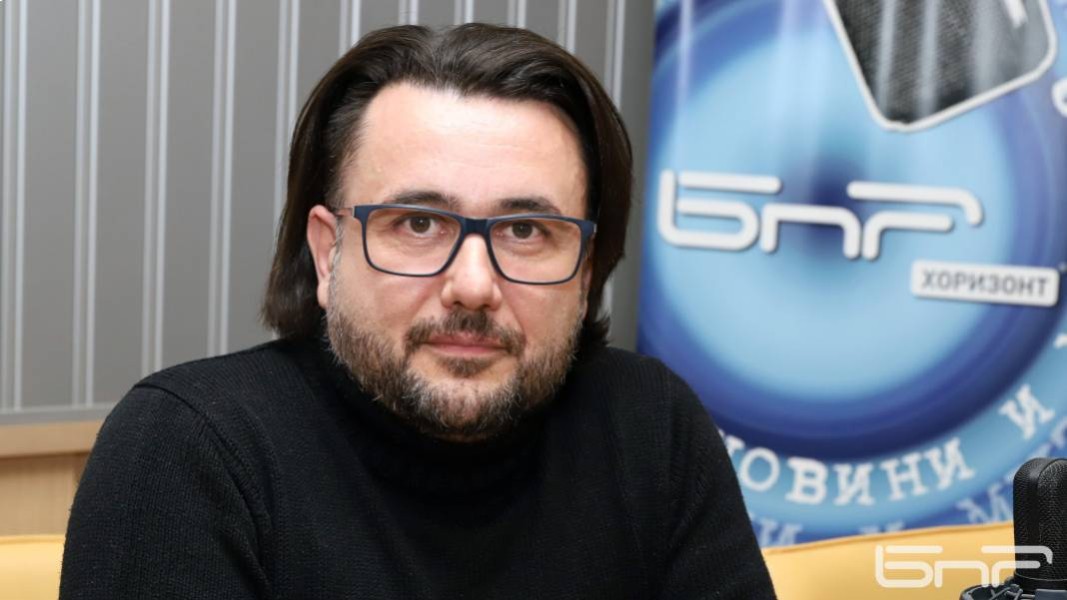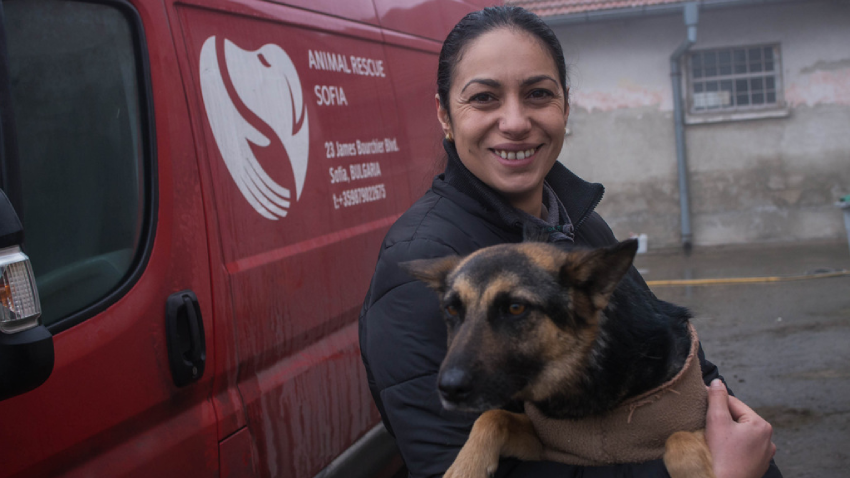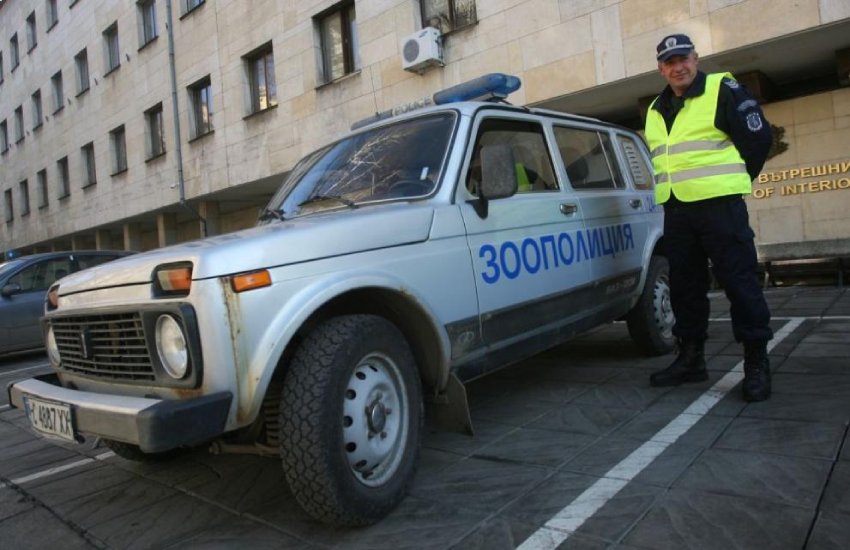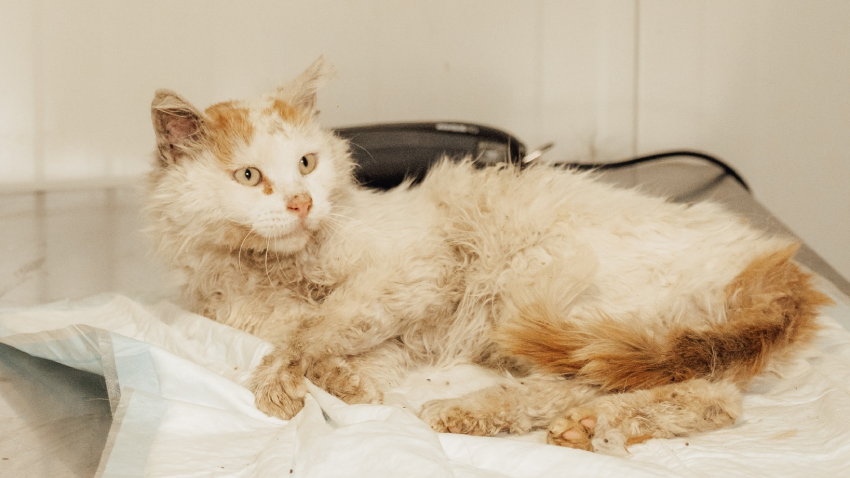A case of a dog run over by a doctor in a district of Sofia has caused a wave of public indignation and a protest in Sofia, which will take place today in front of the Military Medical Academy - the medical institution where the medic works. Meanwhile, the hospital announced that Nenad Tsonevski will not practice his profession until the investigation is completed.
The latest case of inhumane treatment of an animal, which became known as the "incident with dog Maya", as well as several others similar cases in recent months, are a mirror of public morality, social psychologist Assoc. Prof. Nikolay Dimitrov pointed out in an interview with Radio Bulgaria.
"The good thing, if I can say there is something good in these cases, is that as a consequence they reveal that a new type of collective sensitivity is being formed in Bulgaria – empathy for animals as part of human morality in general. Society does not stand passively and does not simply condemn, but rethinks its own identity through its reaction to such incidents. Such cases are not just criminal cases, but also ethical tests for the maturity of the collective consciousness."
He points out the strong psychological contrast provoked by the profession of the perpetrator – in this case, he is a doctor.

"This creates a very strong moral divide in society - how can a person whose role is to save lives commit murder? This contrast can provoke a loss of trust in institutions that are perceived as moral pillars, in this case healthcare - what kind of people work in this system and whether humane doctors can afford to act inhumanely towards animals."
The psychologist says that the public reaction in this case is justified and logical:
"Cruelty to animals is perceived as a violation of the moral code and order and of the very idea of humanness. Collective protest and public condemnation are social mechanisms for restoring moral balance."

Any form of violence, whether against people or animals, must be punished and deterred. This is the position of Animal Rescue Sofia, a non-governmental organization caring for homeless animals. Here is the opinion of people who take care and find new homes for stray animals about cases of inhumane treatment:
"The truth is that stray animals easily become victims of violence and it is rarely checked where and what the dog is. This is because the state does not fulfil its functions as a controlling body,” co-founder of Animal Rescue Sofia, Nadezhda Stancheva, says. “For 15 years now we have been repeating the same mantra in interviews, articles and working groups that the state must control pets and the trade in them. It is mandatory to chip every dog, but there will be no result until the state starts checking this and punishing those who skip it. This is a law that relies on the goodwill of people. If every dog purchased from a pet store is registered with its owner and then the dog is found living on the street, there will be someone to be fined and this person will definitely think again before throwing their next dog away."
There is Zoo Police in Bulgaria, but according to Nadezhda Stancheva, this structure does not work effectively in cases of animal abuse:

"It has few resources and powers. These are police officers who do normal police work and when there is a case of animal abuse, people can turn to them. However, they are just few people for the whole country, so this is clearly not the form in which the laws should be applied."
Nadezhda Stancheva also told us about another problem that has existed for a long time and is related to the other most common type of pet – cats.

"There is no unified database of microchips placed on cats. Even if we chip a cat, this number does not lead to anyone. This is a problem, as it is mandatory for the cat to be chipped, for example, in order to travel with its owner, as well as when buying and adopting, but this chip does not provide any information. The unified VetIS database was created by the Bulgarian Food Safety Agency and it includes horses, sheep, goats, dogs, but no cats. Therefore, even responsible owners who want to register their cat cannot do so."
Author: Yoan Kolev
Publication in English: Alexander Markov
Photos: BNR - archive, BGNES, arsofia.com, nova.bg
Minister of the Environment and Water Manol Genov has granted two centuries-old trees – each of which approximately 200 years old – protected status, the ministry has announced. One of them, a European white elm (Ulmus laevis), is 24 metres tall..
Everyone knows that as soon as temperatures start going down it is pickle-making season. Making preserves at home is a time-honoured and widespread tradition in this country, and, in this season, practically every family in Bulgaria sets about making..
Under the motto "Responsibility, Unity and Security" on November 5 and 6, 2025, a German-Bulgarian seminar for journalists and public figures was held in the Hyatt Regency Sofia Hotel. The organizers were the European Academy in..
Forty Bulgarian schools in 22 US states have become a second home for the children of Bulgarian emigrants. They create continuity..

+359 2 9336 661
